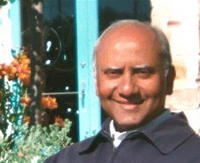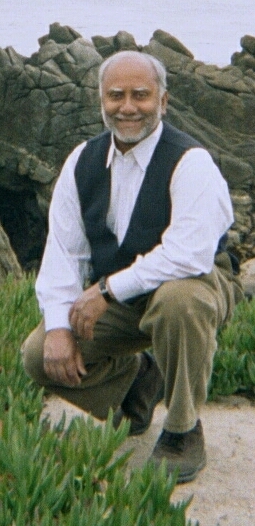A Follow-Up On the Slow Learner's Journey
New River Free Press International:
Could you explain the Theory
of Multiple Intelligences and
why it is important for teachers
and trainers to take them into
account in their teaching and
training modules?
_____________________
PeterKline We used to think that IQ was something that could be measured on IQ tests.
We now know differently because Dr. Howard Gardner discovered there are several different intelligences in the brain, not just one. Only two of these intelligences are measured on IQ tests, and consequently emphasized in traditional education.
The other seven are ignored, and since most people learn primarily through one of these nine intelligences, that means that the learning needs of about seventy-five percent of our students are being ignored by most teachers.
Harvard neurologist Howard Gardner developed the theory of multiple intelligences based on his research with brain damaged people. He found that either as a result of accident or birth defects it was possible to remove one of these intelligences from a human brain without damaging any of the others.
On that basis, he regards them as neurologically separate and independent from one another. As a result, it makes sense to train all children in all nine of these areas with course materials and methods of instruction that appeal to all of them. The nine intelligences are:
The ability to use, think about, learn,
translate, and otherwise manipulate
languages in all their different forms.
Logical-Mathematical
The ability to manipulate mathematical and
logical systems so as to build up logical
structures that are internally consistent.
Kinesthetic
The ability to think with the body in
planning physical actions, such as catching
a fly ball, structuring a spin in figure-skating,
or imagining what it would be like to ride
on a beam of light while looking at a
clock that has been left behind.
Musical
The ability to understand, interpret, appreciate,
play, conduct, sing, and otherwise respond to
or create music, rhythm, melody, and harmony,
both in a literal and a metaphorical sense.
Spatial-Visual
The ability to mentally structure space (even
if you are blind) so that you have a sense of
how objects in the environment relate to one
another that remains structured and consistent
even as your point of view and perspective
on them changes.
Interpersonal
The ability to relate to other people in such
a way that you can learn from them.
Intrapersonal
The ability to relate to yourself in such a
way that you can learn from yourself.
Naturalistic
An intuitive understanding of how nature
is organized that can also be applied to
things like the engine of an automobile or
the interior of a television set or computer.
Existential
The ability to understand and have an
interest in the meaning of life.
http://indiawritingstation.squarespace.com/kline-learning-styles/
NOTE: THIS INTERVIEW FORMAT IS THE INTELLECTUAL PROPERTY OF MICHAEL CHACKO DANIELS AND HIS ELECTRONIC PUBLICATIONS: NEW RIVER FREE PRESS INTERNATIONAL: US-INDIA WRITING STATION AND CAREER VISIONS FOR A SMALL PLANET.
AGREEMENT: NEW RIVER FREE PRESS INTERNATIONAL/US-INDIA WRITING STATION/AND/OR CAREER VISIONS FOR A SMALL PLANET WILL RETAIN THE FOLLOWING RIGHTS: ALL RIGHTS TO PUBLISH THE ENTIRE INTERVIEW, OR PART(S) OF IT, IN ELECTRONIC, AUDIO, VIDEO, AND/OR PRINT VERSIONS; ALL RIGHTS TO RETAIN IT IN ITS PUBLIC AND PRIVATE ARCHIVES INDEFINITELY; AND ALL RIGHTS TO INCLUDE IT IN FUTURE PRINTED COMPENDIUMS AND BOOKS. THE EDITOR RETAINS THE EDITOR'S PREROGATIVE TO EDIT THE INTERVIEW FOR GRAMMAR, STYLE, CONTENT, AND LENGTH. THE INTERVIEWEE FULLY UNDERSTANDS THAT HE/SHE WILL NOT RECEIVE ANY PAYMENT, EITHER NOW, OR IN THE FUTURE, FOR PARTICIPATING IN THIS INTERVIEW. BY SUBMITTING WRITTEN AND/OR ORAL RESPONSES TO THE ABOVE QUESTIONS BY ANY METHOD, INCLUDING, BUT NOT LIMITED TO, ELECTRONIC, TELEPHONIC, MANUAL, AND/OR POSTAL METHODS, THE INTERVIEWEE AGREES TO THE ABOVE CONDITIONS AND STIPULATIONS. AFTER FIRST PUBLICATION BY NEW RIVER FREE PRESS INTERNATIONAL/ US-INDIA WRITING STATION/AND/OR CAREER VISIONS FOR A SMALL PLANET, THE INTERVIEWEE RETAINS THE RIGHT TO USE HER/HIS IDEAS AND WORDS THAT ARE CONTAINED IN HER/HIS RESPONSES IN THE INTERVIEW FOR ANY PURPOSE WITHOUT RESTRICTIONS. THE FORMAT OF THE INTERVIEW AND THE QUESTIONS WILL REMAIN THE PROPERTY OF THE EDITOR AND PUBLISHER.
An avid reader's comment about
Michael Chacko Daniels'
handcrafted books:
they look like little treasures."
--Brenda Coleman
a work of art in itself.
Click here to view a digital version of
Click here to view a digital version of
______ * ______
Michael Chacko Daniels' website,
US-India Writing Station?
If not, please do and be sure to
bookmark it. If you wish to
refer others to it, here's the URL:
 Feel free to visit, and explore: Fiction, Poetry, Community Service, Homeless, Commentary, & Discussion On The Road To Remaking The World We Live In . . . San Francisco, Grand Rapids, Evanston, Bombay, Kerala, Oakland, Berkeley, Monterey, Bangalore, Calcutta . . .
Feel free to visit, and explore: Fiction, Poetry, Community Service, Homeless, Commentary, & Discussion On The Road To Remaking The World We Live In . . . San Francisco, Grand Rapids, Evanston, Bombay, Kerala, Oakland, Berkeley, Monterey, Bangalore, Calcutta . . .Feel free to share the above link with others.
Sing an Indian Name, on Denver Syntax's free online magazine?
If not, here's the URL:
http://www.denversyntax.com/issue5/fiction/daniels/indian.html
You are invited to visit
New River Free Press International's
Career Visions for a Small PlanetCheck Out the Visions of
People Remaking Our Planet
Issue #1: Valerie Street
Issue #2: Hong Hunt
Issue #3: Ian C. Dawkins Moore
Issue #4: Peter Lee Kline
Issue #5: Ralph Dranow
Issue #6: Joseph Kaval
Issue #7: Quentine Acharya
Issue #8: Narendra Jadhav
Issue #9: Trash Pickers of Grand Rapids
Issue #10: Amanda Gerrie
And the following
Popular History Pages
/housing-conspiracies-michigan/
/open-housing-grand-rapids-1976/
/cities-survival-william-thrall/
/faith-society-father-ed-monroe/
/faith-society-praying-polish/
/zoo-cruelty-animals-michigan/
/food-coops-for-a-small-planet/



Reader Comments